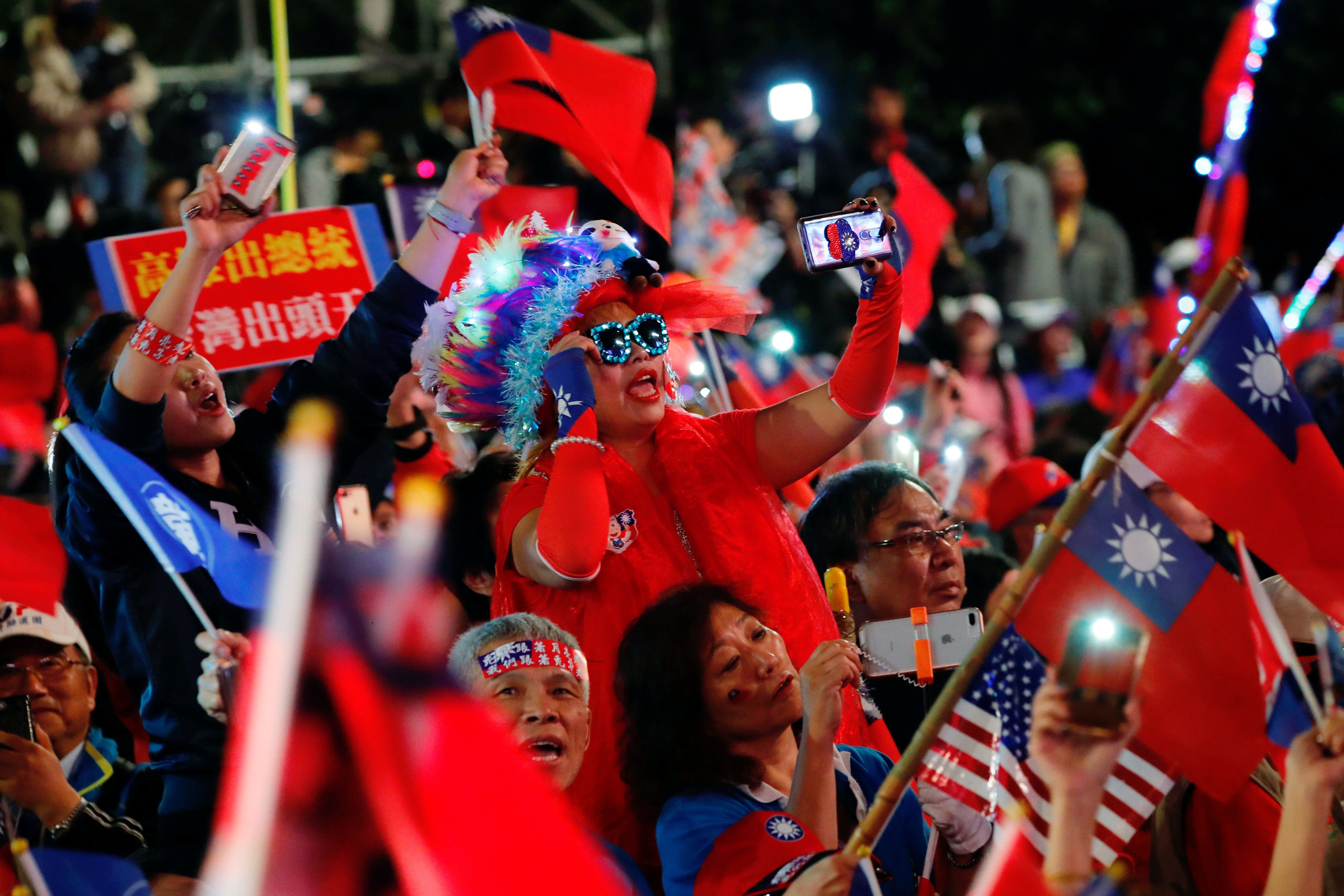On Saturday, voters in Taiwan's presidential and parliamentary elections will choose between the Democratic People's Party (DPP), which is pro-independence and openly critical of China, and the Kuomintang (KMT), which argues for engagement with the mainland.
Of course, China isn't the only issue riling Taiwan's voters. Pocketbook issues matter here as elsewhere. But months of unrest in Hong Kong have riveted and appalled Taiwan. Some there see Hong Kong's protests and violence as evidence of the dangers of confrontation with Beijing. But many others see a concerted effort by China to stifle freedoms of speech and assembly—and a warning that closer ties with Beijing are therefore dangerous.
Taiwan's voters can hear China's President Xi Jinping's calls for Taiwan to join Hong Kong and Macau in a "one country, two systems" reunification with the mainland, a formula opposed by 89 percent of Taiwanese respondents in a poll conducted three months ago. And they can see the Shandong, China's new aircraft carrier, gliding ominously through the Taiwan Strait.
Tsai Ing-wen of the DPP will probably win re-election as president. The more interesting question is whether her party can hold onto its parliamentary majority. If it does, we can expect tough talk toward Beijing to continue. If the KMT wins a majority, tensions with China will cool as Taiwan slides into legislative gridlock.
China's leaders will be watching closely. There's nothing new about Chinese scrutiny of Taiwan's elections, but after months of global media coverage of Hong Kong's massive protests, a resounding win for pro-independence candidates in Hong Kong's local elections two months ago, intense international criticism of the imprisonment of Muslims in "re-education camps" in China's Xinjiang province, and an ongoing trade war with the United States that has weighed heavily on China's already slowing economy, President Xi is in no mood for hostile rhetoric from Taiwan.
If the DPP keeps control of both the presidency and parliament, Xi may use a variety of means—trade, investment, and perhaps even military—to gradually dial up pressure on Taiwan. If that happens, look for a reflexive response from Washington in support of Taiwan.
That would be one more source of friction in a relationship already headed in a dangerous direction.
